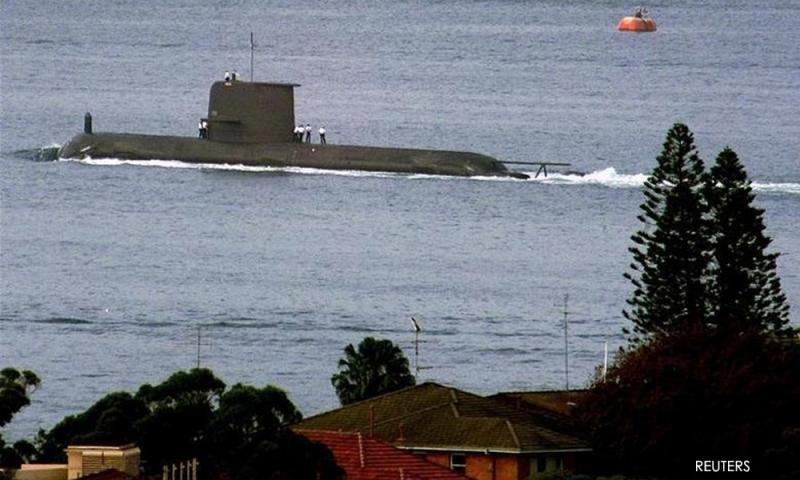Tucked away in the inner pages of the mainstream western media covering the furore over the Australia-UK-US (Aukus) trilateral nuclear submarine deal recently was a report on the response from Indonesia.
Among Asean countries, Indonesia had been the quickest to respond, with its Foreign Ministry noting that “Indonesia is deeply concerned over the continuing arms race and power projection in the region”.
This concern is with good reason. Geographically and strategically, the country is the quintessential Indo-Pacific country.
With a population of 270 million scattered over 17,000 islands straddling the Indian and Pacific Oceans and the South China Sea, it has the most to worry about and lose from any change to the military and security status quo, in particular, any brought about by foreign nations that have little or no legitimate place in the region.
It is not only the timing and manner of the announcement which treated Malaysia, Indonesia and the other countries in the Indo-Pacific as an afterthought to be informed very late in the day - after Australian Prime Minister Scott Morrison’s announcement to his country folk and the rest of the world regarding the procurement of nuclear submarines that has caused discomfort and alarm.
It is also the establishment of a new Anglo-centric military pact in the region with the clear intention to encircle, contain and weaken China. The dangers from this new phase of an ideological cold war that also has strong racial undertones are both in the intended and unintended consequences.
Indonesian concerns
Muhadi Sugiono, a campaigner for the Nobel Peace Prize-winning International Campaign to Abolish Nuclear Weapons (ICAN), expressed it clearly:
“Although the Australian government insists that the submarine is not nuclear-armed, this decision has clearly sent the wrong message at the wrong time. The possession of these nuclear submarines and the presence of a military nuclear reactor being built in Adelaide indicate the increasing nuclearisation of Australian military forces and the potential for nuclear weapons proliferation in Australia.”
Another Indonesian opinion leader, Mutti Anggita, lead analyst at the Laboratorium 2045 think tank, has pointed to other ripple effects:
“The presence of nuclear submarines in Australia puts Australia, its neighbours and the Asia-Pacific region at risk of becoming a nuclear accident site, whose impact can be as devastating as the impact of a nuclear weapon explosion.”
She omitted to mention that any explosion by accident or design in the seas or lands of our region, set off by or associated with prowling submarines, will kill off life for many generations to come.
West's record on peace and security in the Asia Pacific
There is another important reason why Southeast Asians should beware of the sales talk by Western big brothers promising peace whilst adding substantially to the risk of a war that can end everything.
Those of us with longer memories will never forget how our three Western nations ‘eternal’ friends, together with France and other Western colonial powers as well as Japan with its heinous past, have imposed themselves in this part of the world.
Indonesians, in particular, will recall the role that the three countries of Aukus played in the political disturbance and tragedy of the Sept 30, 1965, coup which led to the blackest period in Indonesian history.
Estimates of the innocent people who died range from a figure of 500,000 to one million arrived at by independent experts, with higher estimates of as many as two million casualties. In addition, 600,000 to 750,000 people were imprisoned in the aftermath for periods of between one and 30 years.
Roles of US, UK and Australia in Sept 30 genocide
The three nations of Aukus set up today to ‘maintain peace and security’ in our region were identified as playing a key role in fomenting and abetting the mass killings in Indonesia.
According to the International People's Tribunal on 1965 Crimes Against Humanity in Indonesia held in November 2015 and presided over by seven international judges, the massacres "intended to annihilate a section of the population and could be categorised as genocide”.
Chief Judge Zak Yacoob stated that "the United States of America, the United Kingdom and Australia were all complicit to differing degrees in the commission of these crimes against humanity".
Although Australia's foreign affairs ministry rejected the tribunal's conclusion and denied that the country was in any way complicit in the killings, independent studies, including from Australia, have shown that the Australian Government played a larger role than is commonly known or acknowledged.
Performative politics and demonising strategies
Today, as the Aukus nations preach their performative support for peace, freedom and human rights in the Indo-Pacific region, they have a long history of falsehoods, lies and bloodied hands to account for; as well as the true intentions of the new military pact to divulge.
In opening remarks to a conference to mark the 50th anniversary of Sept 30 held at the Australian National University in 2016, Gareth Evans, professor emeritus of the International Crisis Group, the Brussels-based independent global conflict prevention and resolution organisation, described the September coup as “a case study in the politics of mass murder – what you can get away with when you characterise and demonise opponents in a particular way, achieving ends which are conceivably defensible by means which are morally atrocious”.
These words should not only serve as a reminder to Indo-Pacific countries to oppose any attempt to be drawn into an ideological war that draws upon racist and fear-mongering sentiments.
We in Asean should also reject being used as proxies by the West’s political leaders seeking to make use of our region in the imposition of their own hegemonic designs and opportunistic version of rights, wrongs and rules. - Mkini
LIM TECK GHEE is the author of Challenging Malaysia’s Status Quo.
The views expressed here are those of the author/contributor and do not necessarily represent the views of MMKtT.





No comments:
Post a Comment
Note: Only a member of this blog may post a comment.